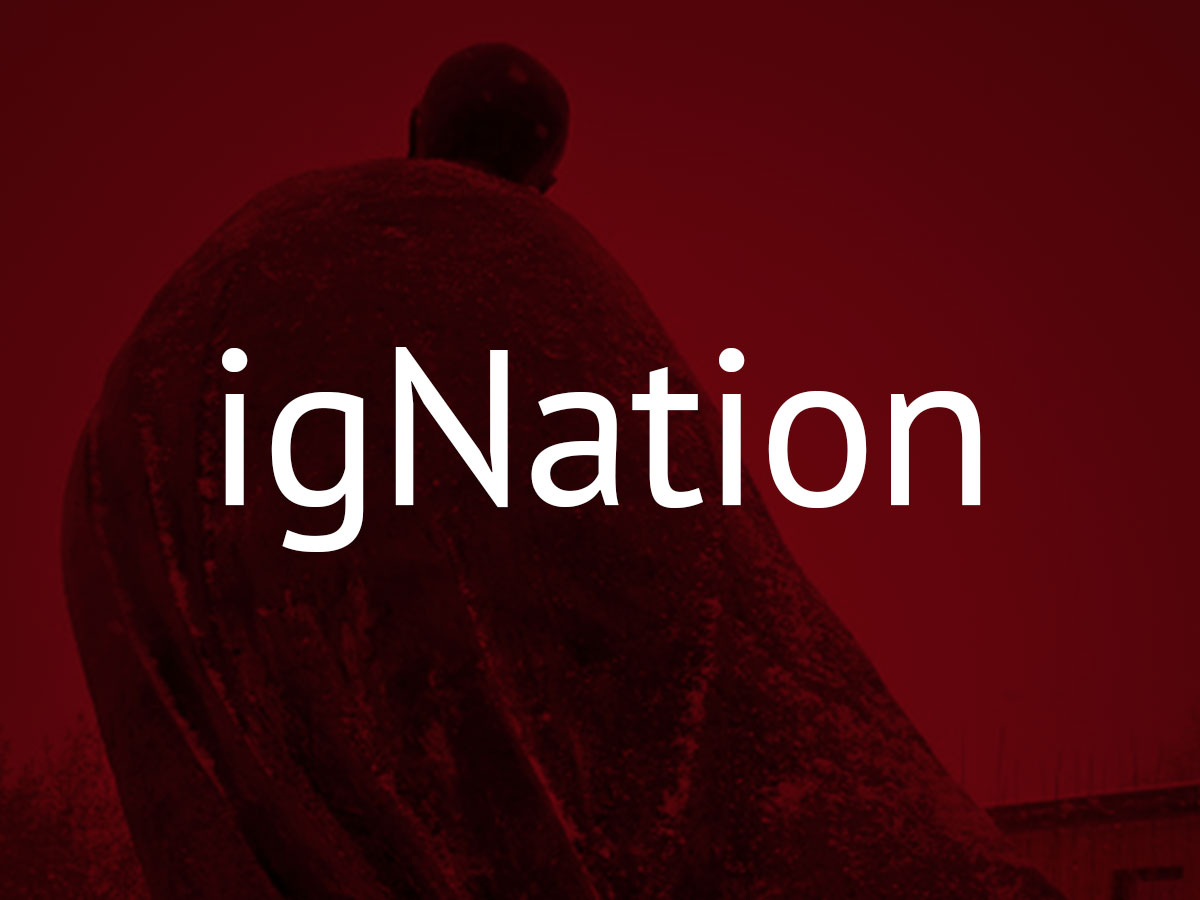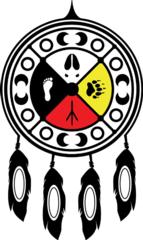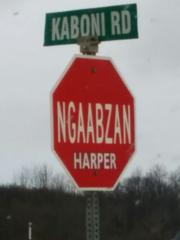On Being Called “mekatekwinye”, and Other Names

 One day this summer, another Jesuit and I visited the offices of the Wikwemikong Heritage Organization. There, a group of locals sat around over coffee, discussing the Anishinaabemowin language. They were considering words and their English translations, and working on a language app. Stephen, who had invited the two of us to stop by, introduced us to the others. I didn’t understand much of what he said, but did recognize one word that I had heard and seen a few times already: “mekatekwinye”, which could translate as “Jesuit” or as “priest”. Literally, it means something along the lines of “the one who wears black”.
One day this summer, another Jesuit and I visited the offices of the Wikwemikong Heritage Organization. There, a group of locals sat around over coffee, discussing the Anishinaabemowin language. They were considering words and their English translations, and working on a language app. Stephen, who had invited the two of us to stop by, introduced us to the others. I didn’t understand much of what he said, but did recognize one word that I had heard and seen a few times already: “mekatekwinye”, which could translate as “Jesuit” or as “priest”. Literally, it means something along the lines of “the one who wears black”.
One of the women of the group suggested that a new name should be found for us. She suggested this because she had in mind the literal meaning of the term that Stephen had used, and had taken a look at the two of us who were not particularly dressed in black. Someone suggested the new term “nameh-nini”, which might be translated as “prayer man”.
Not too long afterward, upon a visit to the local nursing home, someone commented that my Jesuit companion and I were rather young-looking priests. I asked one of the residents, named Stan, how to say “young priest” in the language. I thus learned a new word, perhaps a newly-invented one: “shki-mekatekwinye-ns” (which makes a long word even longer!).
Somewhere along the way, I also learned the word “shkiniigish”, which means “young man”. I surprised Stephen one day by saying: “Aanii, shkiniigish!” He then began to call me the same thing.
There was one other name, also a new one for me, that I got called in Wikwemikong (or Wiky) more often than any of the others mentioned above: “Father”. This name was still new for me, as I had been ordained a priest just a month or two earlier. I was not totally comfortable with it yet, either; but I came to realize that “Father” is a name for me to accept, to be grateful for, to honour and to grow into.
Indeed, I realized that there were people in Wiky who wanted to call me “Father”, and who like having a “mekatekwinye” around. As well, I had long felt that part of my call to Jesuit life was to priesthood, was to becoming a Father.
 Through these experiences, then, I was moved to further prayerful reflection about what it means to be a priest, how to be one, and on who I am. I considered these things in the new context of being an ordained priest, of being recognized publicly as such, and of doing priestly ministry in an interesting community.
Through these experiences, then, I was moved to further prayerful reflection about what it means to be a priest, how to be one, and on who I am. I considered these things in the new context of being an ordained priest, of being recognized publicly as such, and of doing priestly ministry in an interesting community.




No Comments